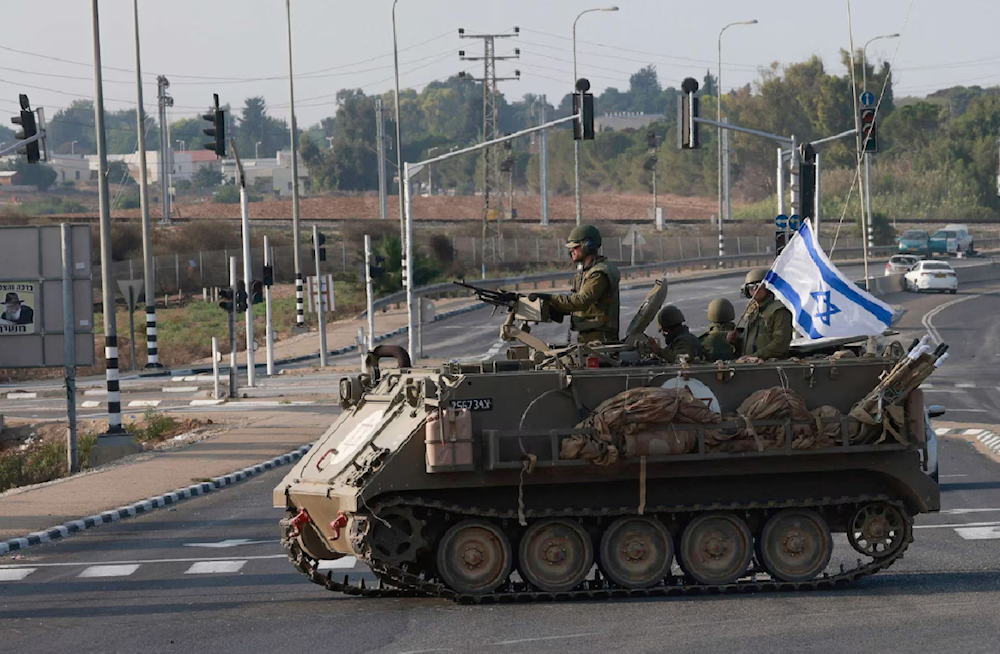Trillions spent on 'hysterical' army unable to defend borders: Haaretz
Israeli military historian Uri Bar-Joseph has described the Israeli occupation forces as lacking all self-confidence.
-

Israeli occupation forces cross a main road in their armored personnel carrier (APC) in occupied Palestine, on October 8, 2023. (AFP)
The Israeli army is a "bad and hysterical army, which has lost all its self-confidence," the Israeli newspaper Haaretz quoted Israeli military historian Uri Bar-Joseph as saying.
According to Bar-Joseph, what took place on October 7, 2023, was that "Israel" failed to defend itself and allowed "Hamas to score the goals."
Bar-Joseph criticized those who believe that doubling combat forces in the IOF is needed to confront Hamas and the Lebanese Resistance Hezbollah. He called the IOF instead to upgrade their preparedness and proficiency.
Last month, the occupation government-appointed Nagel Commission on Evaluating the Security Budget and Force Building recommended increasing the defense budget by NIS 275 billion (about $77.25 billion) by 2034, bringing the total defense budget at the end of that period to NIS 1 trillion.
According to the historian, what "Israel" is doing in Syria is a "violation of all the international rules," detailing how the occupation of Syrian territory occurred without "any instigation".
He detailed how this was a sign of "a country that thinks it's permitted to do everything, and of an army that thinks it doesn't know how to do anything."
The Israeli situation, according to Bar-Joseph, is now the "worst of all worlds," detailing how it was also creating "motivation for aggression against us," rather than striving for a diplomatic agreement.
58 years of failure to end Resistance” in the West Bank
Regarding the West Bank, he expressed that "Israel has controlled the West Bank for 58 years" and has not been successful in ending the Palestinian Resistance there.
He articulated how security concepts have shifted globally in recent years. Today, defensive techniques are expected to take precedence over offensive ones, due to remotely manned methods. For the IOF, which had become accustomed to maintaining an offensive mindset, this necessitates a substantial strategic shift.
Bar-Joseph emphasized that on top of all these considerations is the issue of cost. According to him, occupying sections of Syria, Lebanon, and Gaza at the same time, as well as keeping a massive army tasked with monitoring possibly interminable processes, would come at a high cost, both fiscally and in terms of Israeli military losses.

 3 Min Read
3 Min Read








